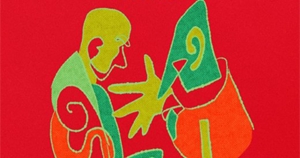Seymour Biography Lecture
Richard Freadman reviews ‘Telling Lives: The Seymour Biography Lecture 2005-2023’ edited by Chris Wallace
In her Preface to Telling Lives, editor Chris Wallace invites the reader to join a thought experiment: a group of biographer-refugees, driven by earthly global warming to reside on planet Alpha Centauri, ask themselves: ‘Did biographers play a role in the downfall of Homo sapiens on Earth?’ Were they, in other words, complicit in the culture of disinformation that contributed to global catastrophe? Writing in the ‘post-truth era’, Wallace highlights the centrality of truth in what has traditionally been termed the ‘biographical contract’.
... (read more)If you’re a theatregoer, then somewhere along the line you’re bound to have seen The Government Inspector, Nikolai Gogol’s comedy about a rapacious nobody being mistaken for a government official by the citizens of a nameless provincial backwater. (They too are nobodies, greedy to be somebodies.) You might remember (since it’s a line that will have evoked both your contempt and your compassion) that the fussy fool Pyotr Ivanovych Bobchinsky, a local landowner, who fails to exist to the point of being almost indistinguishable from his companion Pyotr Ivanovych Dobchinsky, says to the government inspector (who isn’t one):
I beg you most humbly, sir, when you’re in St Petersburg, say to all the different bigwigs there – the senators and admirals: You know, in such-and-such a town, your Excellency, or your Eminence, lives Pyotr Ivanovych Bobchinsky. Just say that: lives Pyotr Ivanovych Bobchinsky … And if you’re speaking to the sovereign, then say to the sovereign as well: in such-and-such a town, your Imperial Highness, lives Pyotr Ivanovych Bobchinsky.
... (read more)Universal dictionaries are no longer possible or desirable. If we would conquer the realm of knowledge we must be content to divide it.’ Thus wrote The Times on 5 January 1885 in its first article on the Dictionary of National Biography (DNB), whose initial supplement – the first of an eventual sixty-three published over the next fifteen years – was then about to appear.
... (read more)
